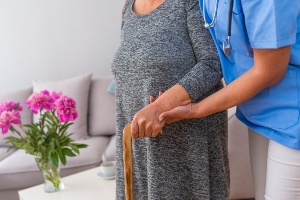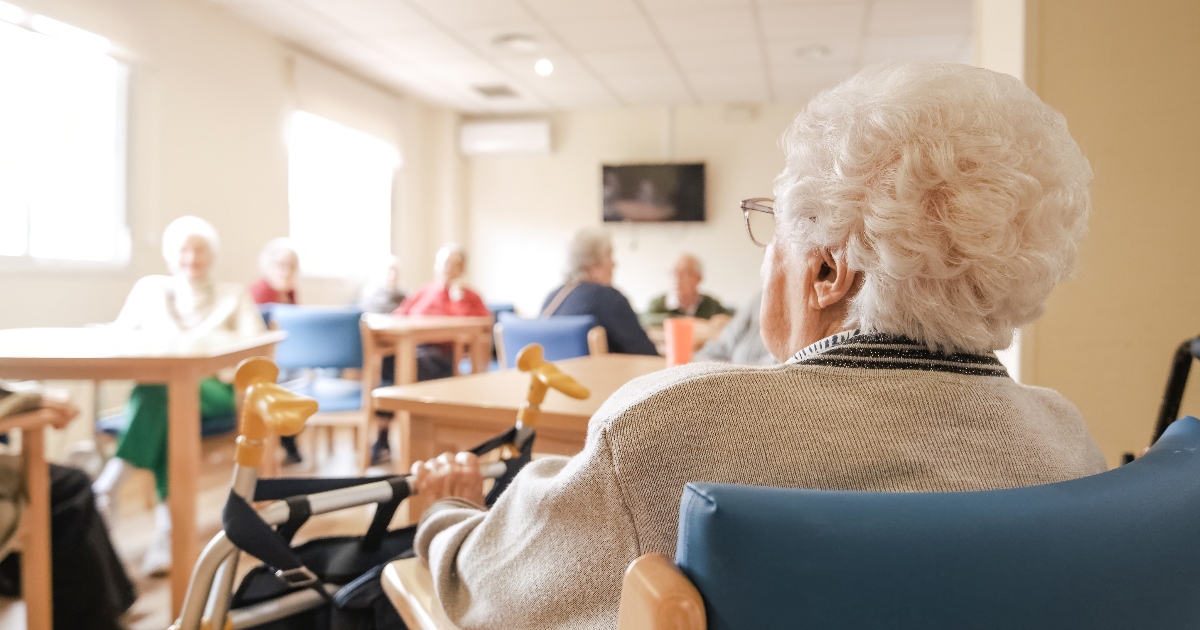One of the causes of nursing home abuse is inadequate staff training. Long-term care facilities that fail to properly train staff may be more likely to have incidents of nursing home abuse or neglect.
Table of Contents
If you suspect abuse or neglect of a resident, be sure to call our Santa Fe nursing home abuse lawyers. At PKSD, we are committed to fighting for the rights of our elderly community and holding at-fault parties accountable.
Request a FREE case review today: 505-677-7777.
Why Training Staff Is Important in Nursing Homes

Nurses, aides and other staff in nursing homes are responsible for meeting a wide range of physical, emotional and medical needs. Proper training is essential to ensure they can fulfill these responsibilities effectively and safely.
Inadequate training leaves staff ill-equipped to handle the challenges that arise in a nursing home setting. For example, they may mishandle a resident with dementia or someone who is bedridden. Under these circumstances, staff may become frustrated or lash out at residents, causing physical or mental abuse.
Staffing shortages can worsen a situation where there are too few staff who have been properly trained. Qualified staff could suffer burnout from being overworked. This situation could endanger residents due to the increased risk of medication errors and other types of negligence that can happen if one CNA or nurse is caring for too many individuals at once.
Proper training should cover nursing home staff communication, conflict resolution and techniques for handling common resident challenges like limited mobility. This helps them provide care with patience and compassion.
Nursing Home Abuse Linked to Inadequate Training
Some nursing homes may fail to fully train staff due to financial burdens. For instance, if a nursing home is in debt, they may not have the necessary resources for proper training. Sometimes having poorly qualified staff is the result of negligent hiring. Unfortunately, unqualified aides or other nursing home staff put residents well being at risk.
When Nursing homes fail to train their staff, it could result in employees who are unprepared to handle the unique challenges of elderly residents suffering with age-related mental and physical medical conditions.
Common types of abuse that residents may experience include:
- Physical Abuse: such as hitting, pushing or roughly handling residents
- Verbal or Emotional Abuse: yelling, insulting, or threatening language
- Neglect: failing to provide adequate food, hydration, hygiene or medical care
- Financial Exploitation: misusing a resident’s funds or property
Common Signs of Nursing Home Abuse
Recognizing the signs of nursing home abuse is crucial, as many residents are unable or afraid to report the mistreatment they are experiencing. For example, if a resident has Alzheimer, they may not have the mental capacity to report the abuse. In other scenarios, residents may avoid telling someone because they think that if someone else know the abuse may get worse.
Family members and loved ones should be aware of these vital warnings:
Physical signs:
- Unexplained bruises, cuts, or other injuries
- Poor hygiene or unclean living conditions
- Unexplained weight loss or dehydration
- Lacerations or rope marks
- Head trauma or bone fractures
- Sprains, dislocation and internal injuries
- Bite or burn marks
- Signs of falls
- Physical restrains
- Medication overdose or chemical restraints
Behavioral signs:
- Unusual changes in mood or personality
- Withdrawal from normal activities or social interaction
- Fear, anxiety or reluctance to speak openly
- Sudden onset of depression or confusion
- Changes in sleeping or eating habits
- Being deliberately isolated from other residents
- Signs of diminished self-worth or self esteem
Financial signs:
- Significant, unexplained withdrawals from the resident’s accounts
- Missing personal belongings or property
- Unpaid bills despite available funds
- New names on bank signature cards
- Unauthorized use of ATM cards
- Sudden changes in financial documents
- Missing valuable possessions
- Forged signature
What To Do if You Suspect Nursing Home Abuse
If you believe your loved one is being abused or neglected in their nursing home, it’s important to act right away. Start by documenting all evidence such as:
- Photographs of injuries
- Records of bank statements
- Written accounts of your observations
Next, report your concerns to the appropriate authorities. If you need to report or file a complaint for nursing home abuse in Santa Fe, you can contact the following authorities:
- New Mexico Department of Health
- Long-Term Care Ombudsman
- Adult Protective Services
Call a Trusted Nursing Home Abuse Lawyer for Legal Help
We recommend seeking legal help from one of our qualified attorneys if you are concerned about a loved one in a nursing home. Our legal team is prepared to help you navigate the complex legal process. They can also advise you on your loved one’s rights and the steps you may take to ensure their safety and well-being.
At PKSD, we are here for you. Call our Santa Fe law office to discuss your potential legal option. We offer a free case review to speak to one of our attorneys.
Contact our trusted law firm today. 505-677-7777






